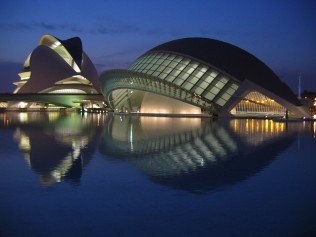
Top European tourist destinations such as Greece, Italy, and Spain are among the worst-hit by the economic crisis that has been tormenting Europe since 2008. Many people have been evicted from their houses and have lost their jobs. Yet even though the situation might seem hopeless to some, others see new opportunities and are trying to overcome the crisis by turning to new forms of tourism.
Entrepreneurial residents of the Greek islands are seizing the economic crisis as an opportunity to make career changes and launch tourism projects that are new to the islands. Their aim is to move away from mass tourism packages to novel alternative activities such as Greek cooking classes, biking and trekking tours, geotourism, and meditation holidays. Alex Christou, until recently an IT professional in Thessaloniki, is among those launching innovative projects such as Green Corfu, an online network to promote alternative tourism in Corfu, with members such as organic farms, holiday retreats in the wetlands, and even a microbrewery.
Meanwhile Italy is set to start renting out historic monuments such as castles and monasteries to luxury hotel chains for development and use as niche resorts, in the hopes that this will help to pay off some of its large debt. “It is a project to promote the effective management of Italian cultural heritage which includes properties that are rarely used or have fallen into disuse,” Italian state property firm L’Agenzia del Demanio told RT. This initiative aims to not only alleviate the Italian debt but also to revitalize the Italian tourism industry. Because of a lack of financial resources, some of these sites are in need of urgent restoration and maintenance, which they will receive once they are leased.
One of the most remarkable initiatives is taking place in Valencia, Spain, where tourists can join a guided tour called the “Ruta del Despilfarro” or “Route of Wastefulness.” The tour visits sites where, according to the tour leaders, large amounts of public money were wasted on major projects -nicknamed “black holes” because of their excessive construction costs – which contributed to making Valencia the most indebted region in Spain. Stops on the tour include the US $1.5-billion City of Arts and Sciences museum complex, the $83-million marina upgrade built for the America Cup’s race, and the $388-million half-built soccer stadium. The tour also passes by trailers where children attend school because their government cannot afford to repair existing buildings. Its organizers include professors and journalists who have lost their jobs because of the economic crisis, and who say they started the tour not only to make money but also to raise awareness on the city’s corruption. Although launched fairly recently, the tour has become a huge success, already attracting over 1,000 visitors.
In several other European cities, similar “corruption tours” have sprung up, with the goal of showing tourists the causes of the current situation: the fraud and waste that lead to indebted governments. In the Czech Republic, travel agency CorruptTour recently started a tour in Prague that passes by luxury villas owned by the city’s wealthy few, a railway placed in a totally illogical location, a massive concrete mausoleum and an empty meadow hosting an Olympic stadium that was funded but never built. As with its Spanish counterpart, this tour was an overnight success. The travel agency even sells ironic corruption-themed souvenirs, such as anti-wiretapping devices.
It just goes to prove that no matter how dire the economic situation, there is still room for innovative ideas. In troubled European tourism hotspots, creative entrepreneurs are finding new ways of looking at their destinations – and perhaps a ray of hope for the future as well.
Read Ethical Traveler's Reprint Policy.
